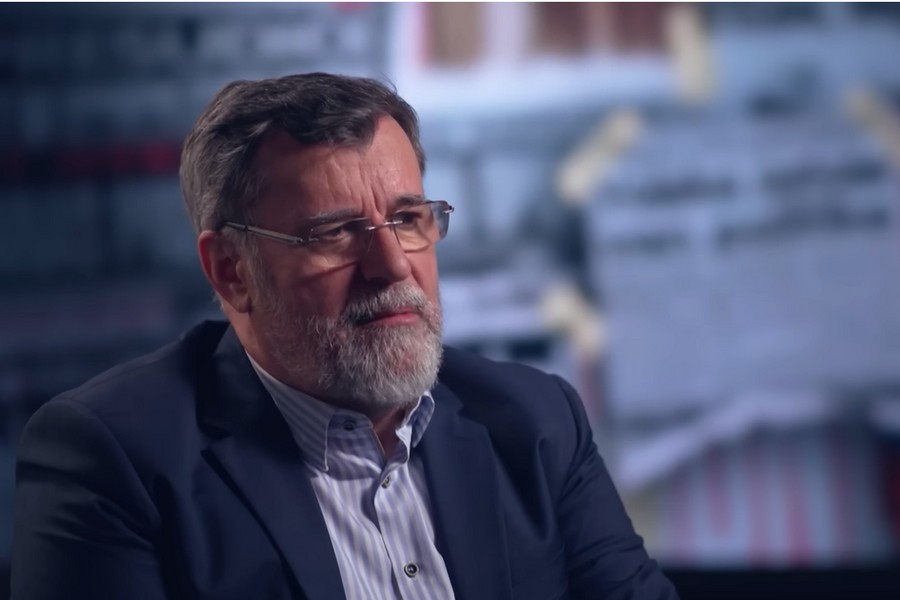
Snimak ekrana, Insajder
Five months following the search in the second retrial of persons accused for the murder of journalist Slavko Ćuruvija, the Court of Appeal in Belgrade has not yet informed of its verdict. However, the leader of the Serbian Renewal Movement Vuk Drašković was the first one to do so, followed by his wife Danica Drašković, who claimed in her op-ed that the verdict – a final one after nearly a decade of trial – is that of not guilty. How much truth is there to that and what would be the consequences, at the national and international level, for journalists and journalism, but also for the entire Serbia, in case that the accused are really granted freedom for a murder committed in the middle of the day almost a quarter of a century ago, for an assassination by the state, this is what we are discussing with the Chair of the Commission for Investigating Killings of Journalists Veran Matić.
Colleague Matić, do you have information about a possible not guilty verdict in the Ćuruvija case?
Vuk Drašković explicitly said on Tanjug TV in June that a not guilty verdict had been reached, and then he repeated it a few times. Moreover, Danica Drašković, in her op-ed published in Danas, also stated this explicitly, mentioning the whole context along with explanations to the effect that nothing else could have been expected, that the ‘deep state’ and state security service were protecting their own.
In the course of the trial and investigation, which lasted for 10 years, all the while there was extremely strong obstruction, often verging on eliminating important evidence from the court proceedings even though there were two verdicts imposing that the tapes that had recorded the movements of State Security Service (DB) officers be returned among the evidence. Paradoxically enough, the court of appeal returned the procedure to the court of first instance, and this court convicted the accused – two times – to a total of 100 years of prison.
Having learned all this, I wrote a letter to the court of appeal asking if a verdict had been reached, and following the correspondence I was informed that it had been, but that it had not been published yet. I was, of course, not able to find out what the verdict was, but this information and the time period coincided with the information made public by Vuk and Danica Drašković. A month ago, I received information from a state secretary to the effect that it was certain that the verdict was ‘not guilty’, and then also from a few of our journalist colleagues who are following different trials, so, at this moment, it is more certain that this is a not guilty verdict than another one, a conviction or different forms of imprisonment.
I cannot much delve on the reasons for why this might be so – if it is true, this will be seen in the decision’s rationale, but it is clear that such a decision would harm the position of journalists in Serbia since impunity for killing a journalist or violence against journalists is the most common generator of other murders and violent acts. In this case, and I repeat, provided that the information is true, this would mean that journalists would not be able to count on a serious legal protection. If such a decision is adjudicated in the case in which the state stood behind the whole process of retrial and re-investigation, after the long years of work of the Prosecutor’s Office and the engagement of the Commission for Investigating Killings of Journalists, it would be a defeat both for the state and for journalism, as well as for any investigation in cases involving murders of journalists.
The attorney of the Ćuruvija family, Slobodan Ružić, says that there are extraordinary legal remedies, mentioning the Court of Cassation, however, the experts claim that the verdict – whichever it might be – is a final one. Do you know something about whether proceedings before the European Court of Human Rights might be expected?
I think that the Court of Cassation can only determine whether there have been procedural failings in reaching the verdict, but without any consequences for the defendants. However, it is certainly necessary to use any legal remedy available. It is also necessary to internationalize the case to a greatest possible extent.
Of course, this very much depends on the family and on ourselves in the media community, on the agreement about the way in which to continue this investigation. Regardless of the decision pronounced by the court, we must not give up on this case, or any other one.
It is clear that for the already unfavourable position of journalists and media in Serbia who are not on the so-called line of state politics, an acquittal can have a negative impact, but should we expect it to have an even broader influence?
The investigation led in the Slavko Ćuruvija murder case had a global significance, and this being so, the state of Serbia was commended, as well as the police and the prosecutor’s office that had pressed charges. The two verdicts resonated very strongly worldwide as an encouraging result and a mechanism making it possible to get results at the level of the judiciary even with a twenty-year-old case. The case is a very well-known one, followed not only by the U.S. Committee to Protect Journalists and the European Federation of Journalists, but also by international organizations such as the European Commission and its bodies, the State Department and organizations within the U.S. Administration, which have jointly provided great support.
At the same time, a possible acquittal would reflect in a huge regress of Serbia on media freedom lists; if I’m not mistaken, we rank 93rd on the Reporters Without Borders’ index, and in 2014, when charges were pressed, we ranked 54th. This is a concerning trend. A final acquittal in this case would help Serbia get a more serious treatment and achieve better results when it comes to international views on what is happening in Serbia and the fight against impunity for murders of and attacks against journalists, and overall, on the safety of journalists as such.
Apart from the Ćuruvija case, we have two other murders; first, that of Dada Vujasinović, who was killed thirty years ago, and second, the murder of Milan Pantić. When he was killed 22 years ago, it was believed that the case would quickly be resolved, yet it is still in the pre-investigation procedure and we keep waiting for it to reach the Office of the Prosecutor for Organized Crime, even though the Commission insists upon this.
The killing of Milan Pantić and the investigation that was led abounded in obstructions as well, even though at the time we thought that the killing of a journalist would be impermissible and that the murder would quickly be resolved.
This did not happen even though the Commission, i.e. the Working Group of the Ministry of Interior and the BIA that worked on the case, found data about the killers and confirmed the names and identities of those who liquidated Pantić, but in order to close the case, it was important to identify the motive. The motive was a contested privatization in that area, and this is precisely why the engagement of the Office of the Prosecutor for Organized Crime is necessary, as this is one of the 24 contemptuous privatizations from the European Commission’s list.
The investigation was stopped in 2010, even though in 2013 a witness appeared, with documents corroborating the thesis from the investigation about the motive for the murder. At this moment, the material has been transferred from Jagodina to the Prosecutor’s Office for them to determine whether they will take over the investigation, which is a stalemate.
As pertains to Dada Vujasinović, as you know, that investigation had a huge handicap, having been led for a long time as a suicide. The passage of time was so long that these forensic analyses were the only thing to do, but the case is still open.
It is in your line of work to know about the (lack of) safety of journalists, and at the moment, the case of OK radio in Vranje is topical. However, media associations, dissatisfied with the reaction of competent authorities, left the Government’s Working Group [for Safety and Protection of Journalists]. What can the media community do in order to protect journalists and media?
There are two bodies that are being mistaken for one another, the Permanent Working Group for Safety of Journalists, established in 2017, comprised of all the associations, the Prosecutor’s Office and the Ministry of Interior. In the meanwhile, its work has been enhanced, we have around 100 contact points in prosecution offices, and the work in the case of OK radio is one of the examples of achieved synergy; a local criminal Dejan Nikolić was convicted for threats and endangering the safety [of OK radio owner and employee], and sentenced to, first, 14 months in prison, and then to an additional 18 months. Of course, a lot remains to be done, and the illegal building that has walled up the radio is yet to be demolished, however, thanks to the synergy of journalists’ associations that followed the case, the local prosecutor’s office and the police, progress has been achieved. The OSCE participates in the work of the Group, we have a telephone hotline, we hold meetings in towns where problems have been noted and we are trying to have proceedings initiated.
The Working Group established by the Prime Minister was a debacle because there wasn’t a clear platform and understanding of why do the double work – it is pointless to make another body doing the same work. The journalist community held a view that this was a working group dealing with policies outside of the scope of the Criminal Code, but a part of the Government’s working group did not accept the proposals to condemn the cases that did not constitute criminal offences, but that were examples of chasing down and targeting journalists or certain editorial boards, of calling them out in Parliament, of creating a truly toxic climate, easily susceptible to grow into forms of violence, which no one among us would want. This was the reason why the journalists’ associations had left the group.
I think that there are reasons to have a body that would react on a daily basis to cases of endangering the safety of journalists and the media and to fierce accusations, but this would require careful planning and organization of what this body does, and how it does it.
If I am not mistaken, someone from the Government or from the Parliament said that pressures on journalists cannot be defined, which is a pretty arbitrary estimate.
It is clear that the greatest and most severe pressures are coming from the highest levels of government, which is impermissible and which further generates attacks on social media through personal chases by bots or people who often have mental health issues. This tells us that this will not stop at the verbal level and that it can put both journalists and media in jeopardy. The satanization of certain journalists and editorial boards is impermissible and it reflects, among other things, on the functioning of all media. If you are isolated, you don’t get information and responses from government representatives, and you can’t do your work. I remember that Insajder used to get most of its data from official sources via the Law on Access to Information of Public Importance, but this pathway is also closed today.
There are many fronts on which the media, particularly the independent media, are endangered, forced to reduce the number of journalists, while the general impoverishment of the media threatens the security of journalists who want to do their job seriously. In the nineties, we had a network of media covered by donations, and today, journalists are left to their own devices.
The “Ćuruvija” case; the crime and the proceedings The owner of the Dnevni telegraf daily and of the weekly Evropljanin, Slavko Ćuruvija, was killed on 11 April 1999 in front of the building where he lived, in Svetogorska Street, Belgrade. He was accompanied by his wife Branka Prpa. The indictment states that an unknown person filed a rifle from a distance of 1.5m, following which Ćuruvija fell to the ground, when he was shot at again from his immediate surroundings. On this occasion, Branka Prpa was also wounded, and according to the indictment, Ratko Romić hit her in the head with a gun so as to prevent her from seeing Ćuruvija’s killers. The investigation confirmed that Ćuruvija had been followed by members of the State Security Service (DB), but that on the eve of the murder, the following stopped. A few days before the assassination, the regime-affiliated Politika ekspres published a slander titled “Ćuruvija welcomes bombs”, which was also read in the prime-time news programme on state television. This put Ćuruvija on the hit-list. After leaving the position of editor-in-chief in state newspaper Borba, Ćuruvija founded NT, in early 1996, and the first independent daily in Serbia, Dnevni telegraf, and then also the weekly Evropljanin. The Ćuruvija murder trial began in June 2015, seventy years after the assassination, which had been immediately recognized by the public as ritual liquidation of a person with different political views. In 2019, the Special Court in Belgrade [The Special Department for Organized Crime of the High Court in Belgrade] declared four former members of the State Security Service guilty of murder, highlighting that the direct perpetrator of the murder was an unknown person. The verdict sentenced former head of the State Security Service Radomir Marković to 30 years in prison, for soliciting to first-degree murder. Former head of the Belgrade intelligence branch Milan Radonjić was also sentenced to a 30-year prison term for first-degree murder. Former DB members Ratko Romić and Miroslav Kurak received prison sentences of 20 years each, for murder in the first degree. The Court of Appeal overturned the verdict in September 2020, providing a rationale to the effect that the Special Court overstepped the bounds of the indictment with its verdict and that, by introducing an unknown person as the perpetrator, it significantly changed the facts described in the indictment. In the retrial, in December 2021, the Special Court re-sentenced Marković and Radonjić to 30-year prison terms each, while Romić and Kurak were each sentenced once more to 20 years’ imprisonment. The Court of Appeal thus decided to re-open the main hearing in order to establish evidence it deems necessary for reaching a final verdict. The main hearing in the proceedings related to the murder of journalist Slavko Ćuruvija began on 6 March before the Council of the Court of Appeal in Belgrade. Marković testified in the hearing that he stood by the defence presented in the first-instance trial, whereby he denied being guilty of the murder of journalist Slavko Ćuruvija, according to the Beta news agency. He also denied the claims from the testimony of former commander of the dissolved Special Operations Unit Milorad Ulemek Legija, who, during the investigation, accused him of killing Ćuruvija. Branka Prpa, the common-law wife of Slavko Ćuruvija, who was with him when he was killed, stated in the hearing of 6 March that she did not recognize either Miroslav Kurak or Ratko Romić, accused of being direct perpetrators, as the attacker who shot Ćuruvija. The investigation and the data from base stations established the movements of the defendants.





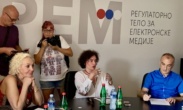

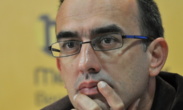
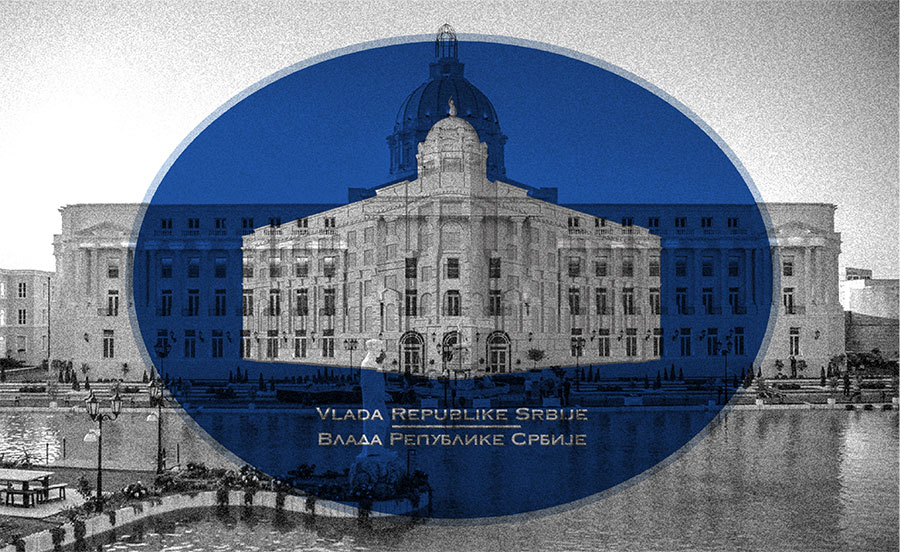 Da li je Vlada Srbije odustala od zahteva za sankcije medijima koji promovišu nasilje i ne vode računa o mentalnom zdravlju mladih?
Da li je Vlada Srbije odustala od zahteva za sankcije medijima koji promovišu nasilje i ne vode računa o mentalnom zdravlju mladih?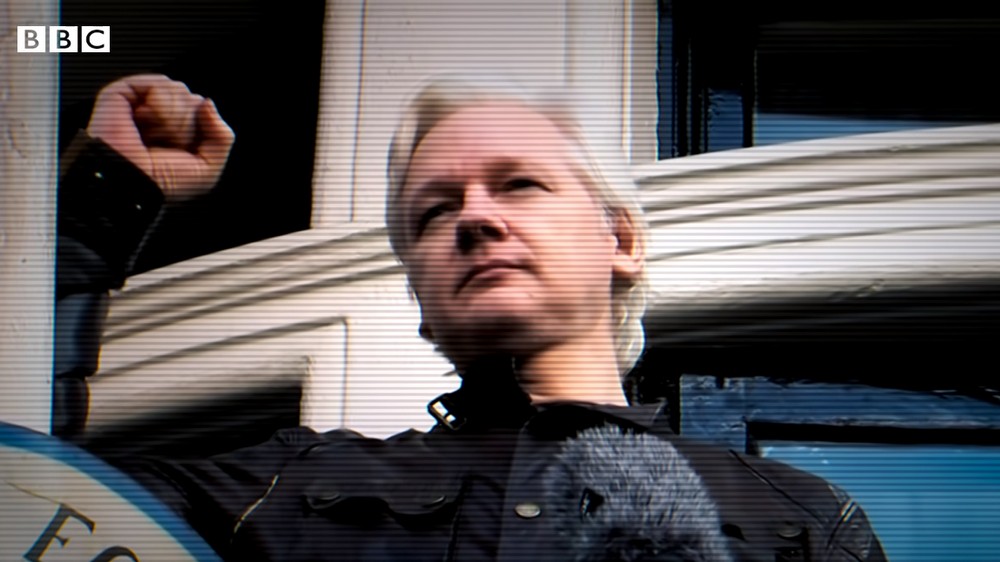 Asanž pred poslednjom žalbom: Odluka sudije koja će imati ogroman uticaj na novinarstvo u svetu
Asanž pred poslednjom žalbom: Odluka sudije koja će imati ogroman uticaj na novinarstvo u svetu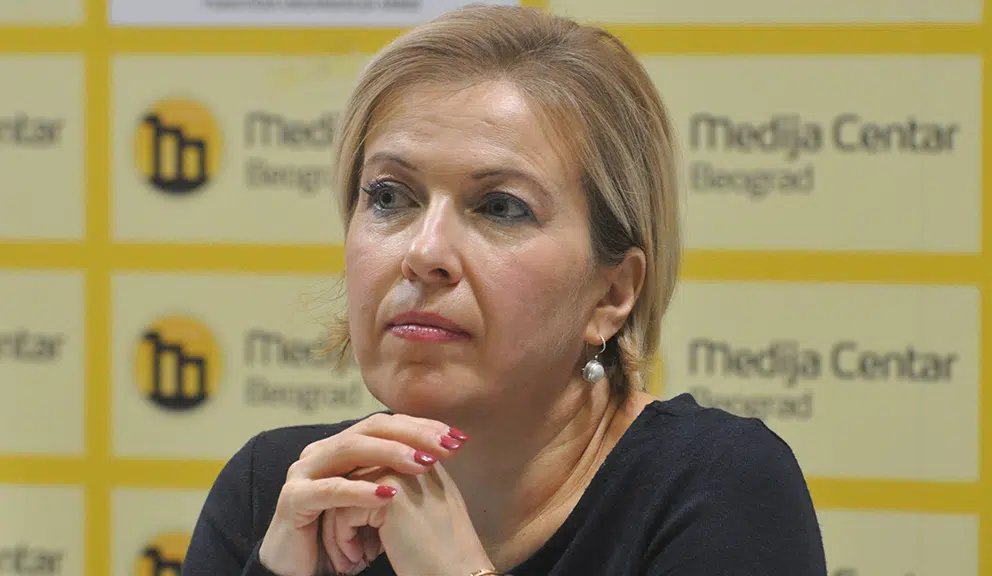 Tatjana Lazarević, Kossev: Udaraju tamo gde je najslabije, u medije koje i kosovska i srpska vlast targetiraju kao vinovnike zla
Tatjana Lazarević, Kossev: Udaraju tamo gde je najslabije, u medije koje i kosovska i srpska vlast targetiraju kao vinovnike zla
Ostavljanje komentara je privremeno obustavljeno iz tehničkih razloga. Hvala na razumevanju.